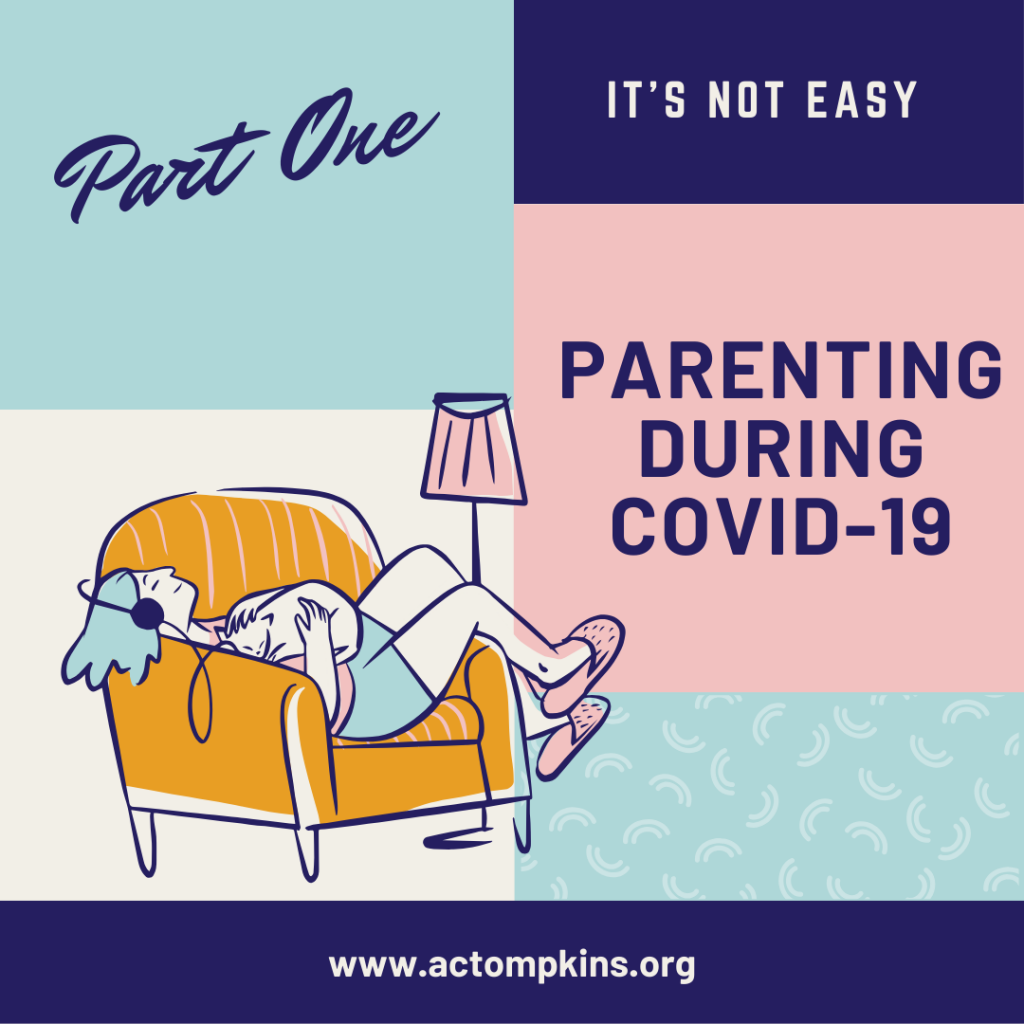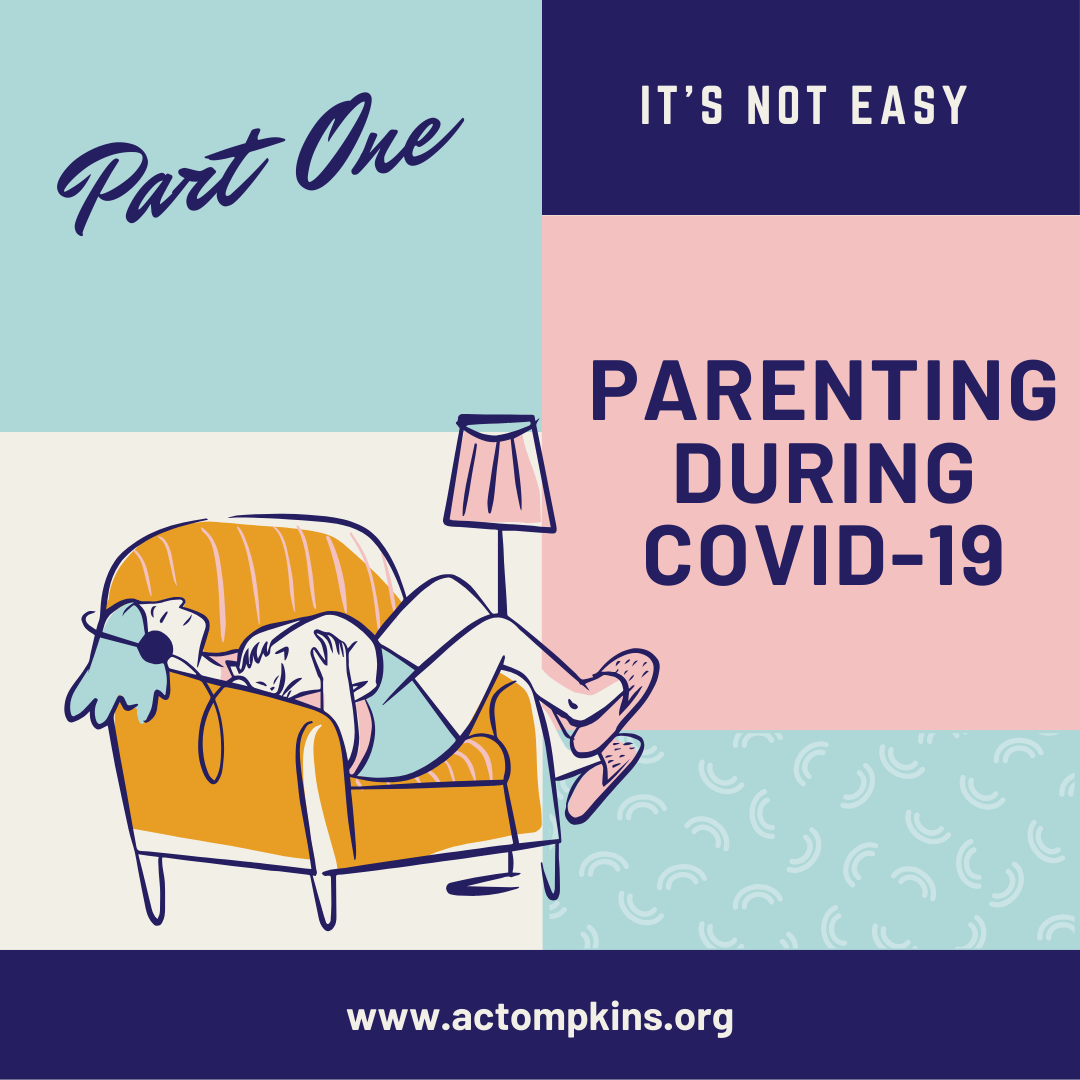
Written by: Youth Services Staff at the Advocacy Center
Parenting is not easy. During the COVID-19 pandemic, parents might be finding it especially challenging. You are not alone. You might be asking yourself: How do I keep my family as safe as I can? How do I talk to my children about what is going on? The National Child Traumatic Stress Network (NCTSN) has put together a factsheet that could help answer these questions and more.
Whether your child is a preschooler, a school-age child (6-12 years), or an adolescent (13-18), he/she/they might be behaving in ways that seem new or strange to you. At the end of this blog we have included some age specific behaviors some children may have during this outbreak and ways that you as parents may be able to help.
For young children who may not be able to understand or explain how they feel around a disaster, an activity sheet like this one might help and without school and/or access to spending time with friends, boredom might be one of the biggest challenges facing your children, and as a result, you. Need some ideas? The NCTSN offers dozens on this printable checklist.
Helping your children cope with a disaster, such as Covid-19, is a situation that few parents or caregivers have thought about or are prepared for and can be overwhelming. Getting some guidance can be helpful and having plans for your own needs is critical. In Tompkins County, the Child Development Council Warmline is a free, confidential, and anonymous service to provide parenting support and assist with basic needs such as diapers and childcare resources. The Warmline can be reached at 607.273.0259 Mon-Fri, 9am-4:30pm. Also, 211Tompkins Cortland is a great resource for various needs including food assistance, transportation, or medical needs that are available.
Remember, you are not in this alone. The Advocacy Center is available 24/7 for those who are trying to navigate this crisis and personal trauma or to provide child abuse prevention and safety materials relevant to this time. Follow us @AdvocacyTC on Facebook, Twitter, and Instagram or visit our website (actompkins.org) for future blogs on Coping through COVID.
Below please find a sampling of behaviors that children may display during this time and strategies caregivers may be able to utilize. Adapted from the National Child Traumatic Stress Network materials.
PRESCHOOL
Reactions:
- Fear of being alone
- Bad dreams
- Speech difficulties
- Loss of bladder/bowel control, constipation, bed-wetting
- Change in appetite
- Increased temper tantrums, whining, or clinging behaviors
Helpful approaches:
- Patience and tolerance
- Provide reassurance (verbal and physical)
- Encourage expression through play, reenactment, story-telling
- Allow short-term changes in sleep arrangements
- Plan calming, comforting activities before bedtime
- Maintain regular family routines
- Avoid media exposure
SCHOOL-AGE (ages 6-12)
- Irritability, whining, aggressive behavior
- Clinging, nightmares Sleep/appetite disturbance
- Physical symptoms (headaches, stomachaches)
- Withdrawal from peers, loss of interest
- Competition for parents’ attention
- Forgetfulness about chores and new information learned at school
Helpful approaches:
- Patience, tolerance, and reassurance
- Play sessions and staying in touch with friends through telephone and Internet Regular exercise and stretching
- Engage in educational activities (workbooks, educational games)
- Participate in structured household chores
- Set/maintain gentle but firm limits
- Discuss the current outbreak and encourage questions
- Include what is being done in the family and community
- Encourage expression through play and conversation
- Help family create ideas for enhancing health habits and maintaining family routines
- Limit media exposure, talking about what they have seen/heard
- Address any stigma or discrimination occurring and clarify misinformation
ADOLESCENT (ages 13-18)
- Physical symptoms (headaches, rashes, pain)
- Change in sleep/appetite habits
- Agitation or decrease in energy, apathy
- Ignoring health (hygiene, nutrition, exercise)
- Isolating from peers and loved ones
- Concerns about stigma and injustices
Helpful approaches:
- Patience, tolerance, and reassurance
- Encourage family routines, including chores
- Encourage discussion of outbreak experience (but do not force)
- Stay in touch with friends through phone, Internet, video games
- Encourage supporting younger siblings
- Plan strategies to enhance healthy habits (hygiene, nutrition, exercise)
- Limit media exposure
- Talk about what they have seen/heard
- Discuss and address stigma, prejudice and potential injustices occurring during outbreak
